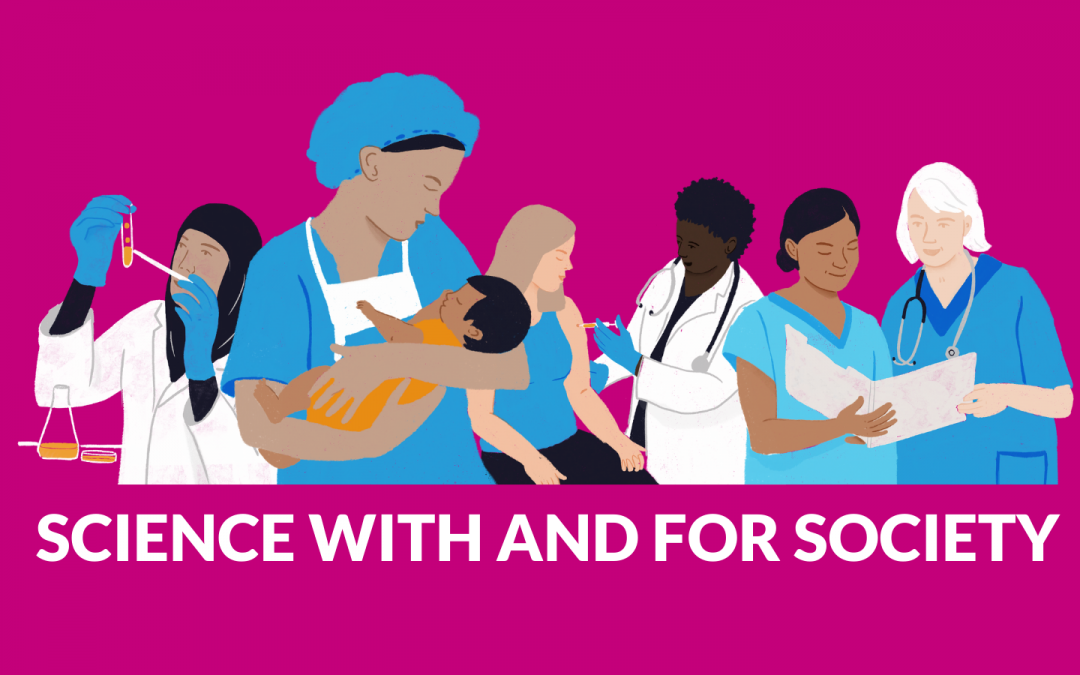November 10 marks World Science Day for Peace and Development, and this year’s theme – ‘science with and for society’ – sheds important light on the role of science in tackling global challenges and achieving sustainable development for all. Science with and for society is core to DSW’s mission, in particular in the fight against poverty-related and neglected diseases.
The current COVID-19 pandemic has been an acute reminder of the impact that the lack of tools to prevent, diagnose, treat, or cure disease has on the health of people, and society. Similar product gaps exist for other global epidemics, those of so-called poverty-related diseases, such as HIV & AIDS, Tuberculosis, and Malaria. For these, and a number of other neglected tropical diseases, no suitable vaccine or treatment options exist. As is the case with COVID-19 (the World Bank estimates that 49 million people could be pushed into extreme poverty in 2020 due to the global pandemic), these diseases hit the poorest the hardest.
As Mercy Kioko, a DSW Youth Champion from Kenya explained earlier in 2020, at the outset of the COVID-19 pandemic, “This like all crises will affect women and girls the most. From unmet health care needs to higher risks of domestic violence, and the risks of being on the front line. Women make up over two-thirds of the global health and social sector workforce. Disease outbreaks affect men and women differently, and our response must consider everyone”.
And this consideration should be in mind at the very start – at the research bench. With the right tools, that are accessible, suitable, affordable, and safe for all, billions of people could live better lives. The research investments made today can have a profound impact on the future of society, in particular in the area of health research. But in order for this to be realised, science for society means science with society.
For a long time, research and innovation was seen as a solely scientific process, with limited engagement with those that would benefit from the work. This could mean that a new health product is effective, safe to use, and maybe even affordable, but not suitable for the individual user for different reasons. For example, drugs that require cold storage can work in high-income countries but might pose challenges in low resource settings. Another example from the area of reproductive health, that we at DSW care about very much is different methods of contraceptives. In some contexts, a pill that requires a daily routine or condoms are not the best tools, as these methods are not very discrete and require partner consent, for example, if male partners are the budget holders or are opposed to contraception.
But, there have been great leaps forward in recognising and involving society and end-users, both in studies and in some cases, in the strategic planning of the research. However, some groups, including women, pregnant women, and children continue to be disproportionately underrepresented in clinical trials for example. This creates a knowledge gap and sometimes makes medicines ‘blind’ and not perfectly suitable for women’s bodies.
Together with other civil society partners, we have been calling since the very start of the negotiation on the future EU research programme Horizon Europe for more inclusive policymaking, where research and innovation policies and agendas are co-created with society, and to make sure that societal impact criteria are part and parcel of the selection and evaluation of projects.
Despite commitments falling short on this issue, we were pleased that, “contribute to tackling global challenges, including the Sustainable Development Goals by following the principles of the Agenda 2030 and the Paris Agreement” is among the official objectives of the Horizon Europe programme. We were equally happy to see “poverty-related and neglected diseases” (PRNDs) specifically mentioned in the legal basis, as funding for PRND research and innovation is scarce and new tools are urgently needed to achieve the SDG target of ending these epidemics by 2030.
It is vitally important that EU public funding prioritises research and innovation that has the potential to contribute to solving the global societal challenges we are facing, and do so in a sustainable and equitable way. It is not always easy, but we must continue to shed light on the limitations of science, to address the gaps, and raise awareness of the importance of science for and with society.
At DSW, we’re currently exploring the topic of gender and research in more detail, and we’ll be launching a new report in the coming months, looking at PRNDs through a gender lens. If you’d like to be kept updated, subscribe to our dedicated EU global health research and innovation newsletter here.
This piece was written by Lisa Goerlitz, Senior Advocacy Officer in DSW’s EU Office.

